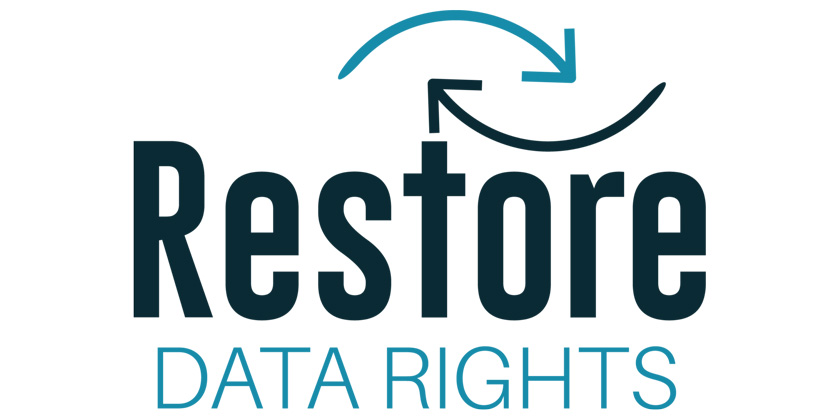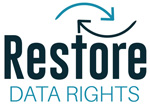Aggregated data and metadata are open to the public
“The Ghana Statistical Service publishes Covid-19 related aggregate statistics on its website. This information includes the new daily reported number of Covid-19 cases, the reported number of aggregate confirmed Covid-19 cases, the reported number of active Covid-19 cases (in regions), the reported number of aggregate recoveries from Covid-19 and the reported number of aggregate deaths These reports are supported by the Data For Good Partnership between the Ghana Statistical Service, Flowminder Foundation and Vodafone Ghana, and are funded by the Vodafone Foundation and the William and Flora Hewlett Foundation.
The Ministry of Health in Ghana sometimes also publishes Covid-19 related aggregate statistics on its social media platforms.
The Ghana Statistical Service, in partnership with the Flowminder Foundation, also produces anonymised and aggregated data from Mobile Network Operators. This data can be analysed in near real-time and provide an overview of mobility patterns across all of Ghana.
The Ghana Statistical Service also publishes aggregated data and metadata about the capacity and utilization of Ghana’s health facilities. The data, however, appears to be incomplete.”
Information on what entities are collecting data, from what communities and for what purposes are made available to the public
“The World Bank provided $135 million to Ghana in emergency support to help provide improved response systems to the Covid-19 pandemic. Under this emergency package, the Ghana Emergency Preparedness and Response Project seeks to help prevent, detect, and respond to the COVID-19 pandemic. This project aimed to help strengthen Ghana’s National Laboratories by providing robust systems for the early detection of COVID-19 cases and provide real time disease surveillance and reporting systems.
The government has launched numerous mobile applications which can be downloaded by healthcare workers to record cases of Covid-19 that have been identified in a national database. Clinical teams have used SORMAS. SORMAS was, however, reportedly unable to capture the geolocation of reports. While SORMAS was being updated to address this deficiency, a partnership between the University of Ghana and US AID was able to develop a supplementary application to enable geospatial mapping of data using ArcGIS which is operated by Esri. Esri is an international supplier of geographic information system software, web GIS and geodatabase management applications. The company is headquartered in Redlands, California.
A data capturing tool ArcGIS Survey123, also operated by Esri, was also deployed to digitize the capturing of data from laboratories. ArcGIS Survey123 allows for the collection of data via web or mobile devices, even when disconnected from the Internet. Staff were trained on the use of ArcGIS Survey123.
In response to the Covid-19 pandemic, the social protection authorities in Ghana have also modified existing data systems to help inform the design, implementation, and monitoring of the country’s social safety system. A special high-frequency survey of social safety net program beneficiaries who receive small and regular cash benefits has been conducted in partnership between the World Bank and Ghana. The survey sought to gather information on the evolving effects of the COVID-19 crisis on the beneficiaries and their coping behaviors. The Ghanaian government has also adjusted the Ghana National Household Registry mechanism to focus on a rapid data collection exercise in Accra just after a lockdown was lifted. Data was collected from street and slum dwellers and the destitute poor who authorities felt would be worst affected by the lockdown. The data was used to enhance the targeting of emergency aid, including emergency housing, food, and other in-kind benefits. The Single Window Citizen Engagement Service, which is a citizen engagement and grievance redressal system run by the social protection authorities, was also expanded to enable it to process a higher number of requests for government social assistance. The data gathered from the service was also used to help map areas in need of greater social assistance.”
Aggregated data and metadata are open to the public
Various government entities who control closed government datasets do not publish aggregated data.
Open source software and algorithms are used to analyse data
After an extensive desktop search of online information using search engines and public websites, no information regarding the software or algorithms used to analyse data by the government in Ghana was found.
Data sharing agreements and related documents are openly published
After an extensive desktop search of online information using search engines and public websites, no information regarding data sharing agreements or related documents was found.
Data ‘suppliers’ and other private sector actors are procured through open and competitive tender processes
Public procurement in Ghana is primarily regulated by the Public Procurement Act 663 of 2003 as amended by the Public Procurement (Amendment) Act 914 of 2016. The guidelines issued by the Public Procurement Authority in Ghana regarding public procurement in the Covid-19 pandemic are, however, unavailable.
Government COVID-19 related data strategies and plans are made publicly available
An extensive desktop search of online information using search engines and public websites did not reveal any further information beyond that otherwise stated in this row.
Details of intra-governmental data sharing are made openly available and are subject to parliamentary, judicial and public scrutiny
After an extensive desktop search of online information using search engines and public websites, no instances of parliamentary, judicial or public scrutiny of intra-governmental data sharing was found.

